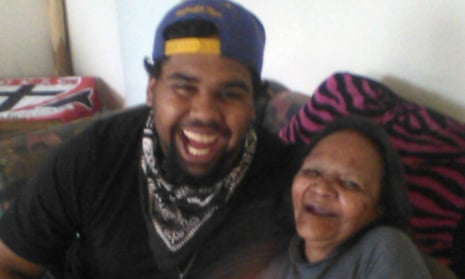An Aboriginal man who at 16 was held in solitary confinement in an adult prison for three months and spent up to 23 hours a day in a cell is suing the Victorian government.
Wonyarna Edwards was transferred from the youth justice system to Port Phillip prison by the youth parole board in July 2012.
He was one of a group of five young people transferred into the adult system following an alleged assault in the youth detention centre.
He was placed in the maximum security Charlotte management unit and claims he was only allowed out for about an hour a day, when his hands were cuffed behind his back. He also claims his meals were delivered through a slot in the door.
A writ filed by Robinson Gill Lawyers in the supreme court of Victoria on Thursday alleged that he suffered ongoing harm as a result of his treatment in the unit, and that being held in the unit was a breach of the Victorian human rights charter.
Edwards had preexisting mental health concerns before being transferred to the adult jail and also suffered from a cognitive impairment that put him within the disability spectrum.
That was known to youth justice but not made apparent to the youth parole board or Corrections Victoria, which managed Port Phillip prison.
A confidential review commissioned by the state government in 2008 found that conditions in the Charlotte unit exacerbated mental illness and that prisoners with active major mental illness should not be placed in a restrictive environment.
A 2013 report of an investigation by the Victorian ombudsman said that conditions in the unit were “very sterile”, consisting of just a concrete slab with a mattress on it, a shower cubicle and a shelf.
“I am of the view that there are no circumstances that justify the placement of a child in the adult prison system,” the report said.
A spokeswoman from the Department of Justice and Regulation said it could not comment on a case that was before the courts.
Edwards was released from the unit on 17 October 2012, after advocacy from the Victorian Aboriginal Legal Centre (Vals).
“The Charlotte unit at Port Phillip is for the worst of the worst violent criminals in Victoria and to put a 16-year-old in there is just absurd,” the centre’s chief executive, Wayne Muir, told Guardian Australia.
Muir said Vals was not made aware of the Edwards case until several weeks after he had been moved to Port Phillip. It is assisting on the civil suit alongside the Human Rights Law Centre (HRLC).
Since 2012 the board has approved the transfer of about 20 teenagers in the youth justice system to the adult prison system, some of whom may have reached the age of 18.
Both Vals and the HRLC have called for the use of solitary confinement to be explicitly banned in Victorian law, following recommendations from the royal commission into the protection and detention of children in the Northern Territory. The NT has since passed those laws.
“If the government’s intention is for solitary confinement to not be used on children … then they should explicitly ban it in legislation,” Ruth Barson, director of legal advocacy at HRLC, said. “But at the moment in Victoria solitary confinement is allowed in law.”
In January Guardian Australia reported that a teenager in Western Australia had been held in solitary confinement for more than 10 months. In 2017, a court in Victoria heard that children transferred to an adult prison following riots at Parkville youth detention centre — which was later found to be unlawful — had been held in solitary confinement.
In both cases, authorities denied that conditions the children were kept in constituted solitary confinement.
“The government can say as often as it wants that solitary confinement of children does not happen but it does not make it true,” Barson said.
The case has not yet been listed for trial.
